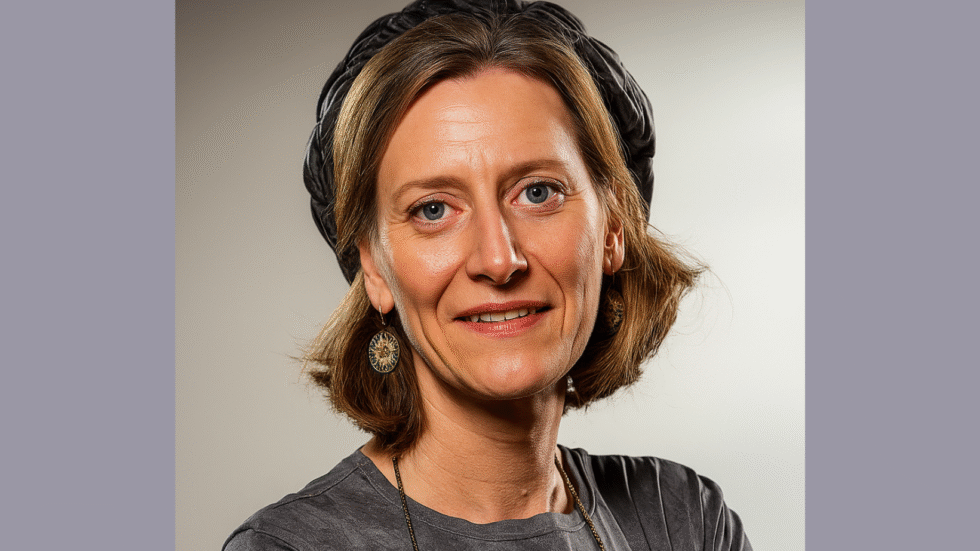
Healthy arguments, they say, spark learning, growth, and connection.
On November 3, Na’aleh: The Hub for Leadership Learning, the Macks Jewish Connection Network, the Baltimore Jewish Council, and The Associated’s Israel Insight Forum and Center for Combating Antisemitism and Hate will host Beyond Dispute: Leading Through Dialogue. November 3rd—which corresponds to 12 Cheshvan—marks Yom Rabin the date of the assassination of Israeli Prime Minister Yitzhak Rabin in 1995. In recent years, this day has come to represent more than remembrance; it has become a call to strengthen our collective capacity for Civil Discourse and healthy disagreement.
Baltimore-area professionals, leaders, and community members are invited to join Abi Dauber Sterne, founder of For the Sake of Argument, to explore the “healthy argument” mindset. This interactive workshop offers practical tools to transform challenging conversations into opportunities for deeper understanding and stronger community connections.
What inspired you to focus your work on healthy disagreement and dialogue, and how did For the Sake of Argument come to be?
Our work is driven both by the harm that can come from bad arguments and by the danger of having no arguments at all.
Many of us have experienced how a difficult argument can strain or even break a relationship. To avoid that pain, we often choose not to engage at all. But silence carries its own risk: when we avoid disagreement, we also avoid important conversations—and our relationships and communities grow weaker as a result.
About five years ago, we first discovered this dynamic while working with a group of young adults in their 20s and 30s. Our goal was to deepen their engagement with Israel and help them create programs for their peers. Most had already hosted an Israeli movie night, a falafel dinner, or a dance party. But when it came to discussing the ideas behind the films, music, or news—issues like democracy, identity, or inequality—they stayed silent.
It wasn’t apathy; it was avoidance. Many didn’t want to offend others or reveal unpopular opinions. Others felt unqualified to speak about complex issues. The result was polite, surface-level engagement that left little room for real connection or learning.
That’s when we realized our task: to help people see that good arguments are not just worth the risk—they’re essential. Done well, arguments make us smarter and bring us closer.
The idea of “holding UNCERTAINTY” is central to your approach. What does that mean in practice for leaders and professionals in our community?
Leaders often feel pressure to project confidence and clarity. But beneath that certainty, most of us still hold questions and doubts—and that’s healthy.
In our work, we teach that sharing even a small amount of uncertainty can open the door to real dialogue. When we acknowledge what we don’t fully know, we invite others to contribute their perspectives. It’s not a sign of weakness; it’s an act of connection. Holding uncertainty allows us to grow together, rather than apart.
What are some common mistakes people make when trying to have meaningful conversations across differences — and how can we do better?
One common mistake is trying to win the argument. In most conversations, we’re unlikely to change someone’s mind. But we can deepen mutual understanding. If we make learning—not winning—the goal, we approach disagreement with curiosity instead of defensiveness.
Another mistake is trying to tackle too much at once. Most bad arguments are about too many issues. Narrowing the focus to just one question or one aspect of disagreement usually leads to a more thoughtful and productive exchange.
If attendees walk away from this session with one shift in how they approach challenging conversations, what do you hope it will be?
We hope they shift their mindset from trying to convince others to trying to learn from others. It’s incredibly rare for a change in perspective—especially a political one—to come from an argument. Think about the last time you debated someone at your dinner table. Did they walk away convinced? Probably not.
Now imagine if, instead of trying to prove your point, you began to ask questions and truly tried to understand their perspective. What a different—and far more meaningful—conversation that would be.
One of the key takeaways from our session is learning how and when to shift the goal of a conversation from winning to understanding.
How can our community continue cultivating a culture of open, respectful dialogue long after this event ends?
Practice. Practice. Practice.
We encourage communities to create intentional spaces for disagreement—what we call “argument circles.” For the Sake of Argument offers resources to help families, friends, and community groups organize structured opportunities to talk through their differences.
By practicing disagreement—using tools like our Percentage Tool, Stretch Intentions, Stories, or Essential Questions—we strengthen not only our communication skills, but also the trust and curiosity that make communities thrive.